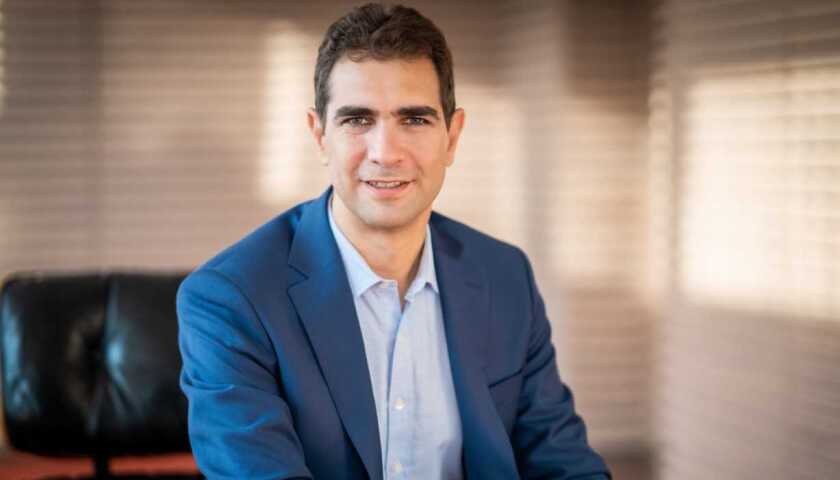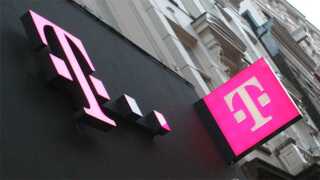Former national telcos often find their history intertwined with that of their native markets.
For example, the history of telecoms in France can be traced back to 1879 when telephone subscriptions launched and the country’s first telephone directories were issued. Fast forward 111 years and the entity that would become France Télécom was setting the scene for a new brand, and the dawn of a new technological era in the country.
In the years since, the operator that is now Orange has established itself as a market leader in all things connectivity. Orange was the first in the world to pioneer remote surgery in 2001, it launched IP telephony in 2004, and in 2006 introduced FTTH in France and Orange Money in Africa.
“It’s really about making life easier — that’s clearly our vision,” says Michaël Trabbia, the group’s newly appointed chief technology and innovation officer (CTIO).
Marking 10 years with Orange this January, Trabbia has held several positions across Orange, from group SVP for corporate public affairs to CEO of Orange Belgium (see timeline). But it is in his experience prior to Orange that Trabbia’s true USP lies.
“I am deeply convinced that it brings a lot to have been in different positions with different expertise,” he says of working across the public, regulatory and private sectors.
“I believe this is really helpful for my new role and it is an exciting role within the telco industry. Technology cycles are so quick and things are changing so fast, they define our structuring and the industry, the ecosystem, the strategy of the players. It is really very exciting for me to be in this role,” he says.
That new role sees Trabbia take responsibility for seizing the opportunities in AI, data and 5G, but from a human-centric perspective.
“At the end of the day our goal is to simplify the lives of people, simplify the lives of our customers and also improve the efficiency of our enterprise customers. It is about the democratisation of technology. That’s really the spirit of Orange and we have a long history of this,” he continues.
It’s also very much about innovation; something that demands time, vision and courage, but as a term is often overused.
A year ago Orange unveiled Engage 2025, a strategy to tackle digitalisation and climate change while boosting innovation. It also includes plans for Orange to grow its business model further with the launch of fibre and tower companies in France and Spain, and it will see Trabbia play a key role in defining “the company of tomorrow” in a post-pandemic world.
“Clearly we don’t want to only be a provider of connectivity. Connectivity is obviously the core of our business and we do it very well and we have a lot of expertise in network and connectivity,” Trabbia says, citing the nine consecutive network recognitions that Orange has received from French regulator ARCEP.
“But we also clearly aim to provide our customers services on top of this connectivity, where we believe we are relevant for the customer.”
Reflecting on the group’s greatest hits, Trabbia says, Orange has been “quite innovative and disruptive in some areas”, one of the most successful being Orange Money in the MEA region. “We have also decided to launch Orange Bank in Europe; France, Spain and other countries,” he continues.
The R&D budget driving all this totals around €700 million — a little below 2% of total revenues, excluding capex and network investment — which exceeds many of the figures reported elsewhere. Admitting that such capability is “something few telcos keep” Trabbia reasons that with technology setting the industry’s pace there’s little other choice.
But that doesn’t mean to say anything is on the table. For Orange, the strategy is about precision and on how that will impact the future R&D spend, Trabbia says: “It is about keeping the effort but also focusing it much more in some areas where we definitely need to prioritise.
“The digital environment is so wide, and it is getting wider and wider. You have so many of these new areas coming up that we need to choose our battles.”
Technological wars
On the battle front, Orange most recently claimed victory in France’s 5G spectrum auction.
Taking the broadest range of frequencies, the group settled for 90MHz for €854 million, boosting its total to 257MHz. “This allowed us to continue to maintain our network leadership and that is our mission”, Trabbia says of the war chest.
However, France, like other nations around the world, has had its fair share of 5G worries. While the country hasn’t gone as far as an outright Huawei ban “in reality it is almost impossible to work with the Chinese”, Trabbia relays.
That isn’t always the case in the other 25 markets Orange is present in. Declaring the equipment bans a political rather than industry debate, Trabbia is acutely aware that in many places Orange is present, Huawei will remain the supplier of choice.
“At the end of the day, what is important to us is to maintain a competitive ecosystem of vendors. We need to have at least three to have a competitive environment,” he says.
“We have no issue from an industry or security perspective. We test the equipment, we are very strict on security, but we need to take into account this environment,” he adds.
Having appointed Nokia to kit things out in Europe, most bases are currently covered, but the debate in itself has highlighted the industry’s precarious position as operators of national infrastructure; torn between the demands of customers and politicians.
“I would say it is clearly a political topic and somehow we need to manage and anticipate the consequences and secure our operations to secure our network. There are some countries where we need to choose vendors that are expected by these countries and their governments,” Trabbia says.
Yet there are lessons to learn from recent experiences and Trabbia says that moving forward, the focus should be on nurturing and maintaining a competitive vendor ecosystem.
“We need to have at least three to have a competitive environment,” he says.
“Three solid vendors with a solid technological roadmap and competitive pricing. The ecosystem has been disrupted by these technological wars so we need to work on this topic in the mid- and long-term, to ensure we can still have this ecosystem.”
More than 5G
While 5G has dominated operations and conversations in some markets, in most the focus remains on earlier generations.
“The reality is that almost all our customers are 3G and 4G. The average handset lifecycle is three years. We don’t necessarily push people to renew their device too often,” Trabbia says.
Admitting it will take “some time” before the majority of traffic is utilising newly acquired spectrum, it means that for the interim many telcos will be maintaining broad spectrum portfolios to deliver services to three generations of technology over the coming years. For Orange in Africa there is still growth to achieve in 3G, but in France the network will be turned off in 2021.
“It depends on the geographies. In Africa for instance we see a lot of growth in 3G and 4G and we know that it takes two to three years for customers to get equipped with the device,” Trabbia explains.
“We will turn our investments from 3G to 4G and 5G based on the growth of the traffic. We prefer to invest in the future, so the sooner we can switch capacity to 5G the better. But it will take a few years before we can have the majority of traffic on 5G,” Trabbia says of the strategy.
The final strand for Trabbia to work into his portfolio is 6G. While not on the official priority list, global preparations for the next-next generation are gaining pace, and Orange will no doubt look to replicate the involvement it had in the international working groups that defined standards for 5G back in 2012.
Trabbia says Orange expressed a “strong environmental concern” around the energy efficiency of 5G networks, and that this has started to progress the decarbonisation of telecoms as an industry.
For 6G, Trabbia wants those early conversations to be attended by representatives from beyond telecoms, including NGOs and governments. That may not reduce the political meddling seen of late, but there will likely be advantages in considering security, capacity and even public education elements from inception.
“We saw a stronger societal impact with 5G than we had for the previous technology and it is important that we can express those requests and expectations at the beginning of the process,” Trabbia says.
On the technology front, the vitals of how and why 6G will exist are yet to be decided, but whatever happens, Trabbia wants Orange to be there.
“For me it is not necessary to be always faster. 5G is very fast and we can have a lot of benefits from this — maybe more than we can use — but indeed from resilience, security, continuing on the energy savings, we would like to be involved in the research and objectives of 6G.”





